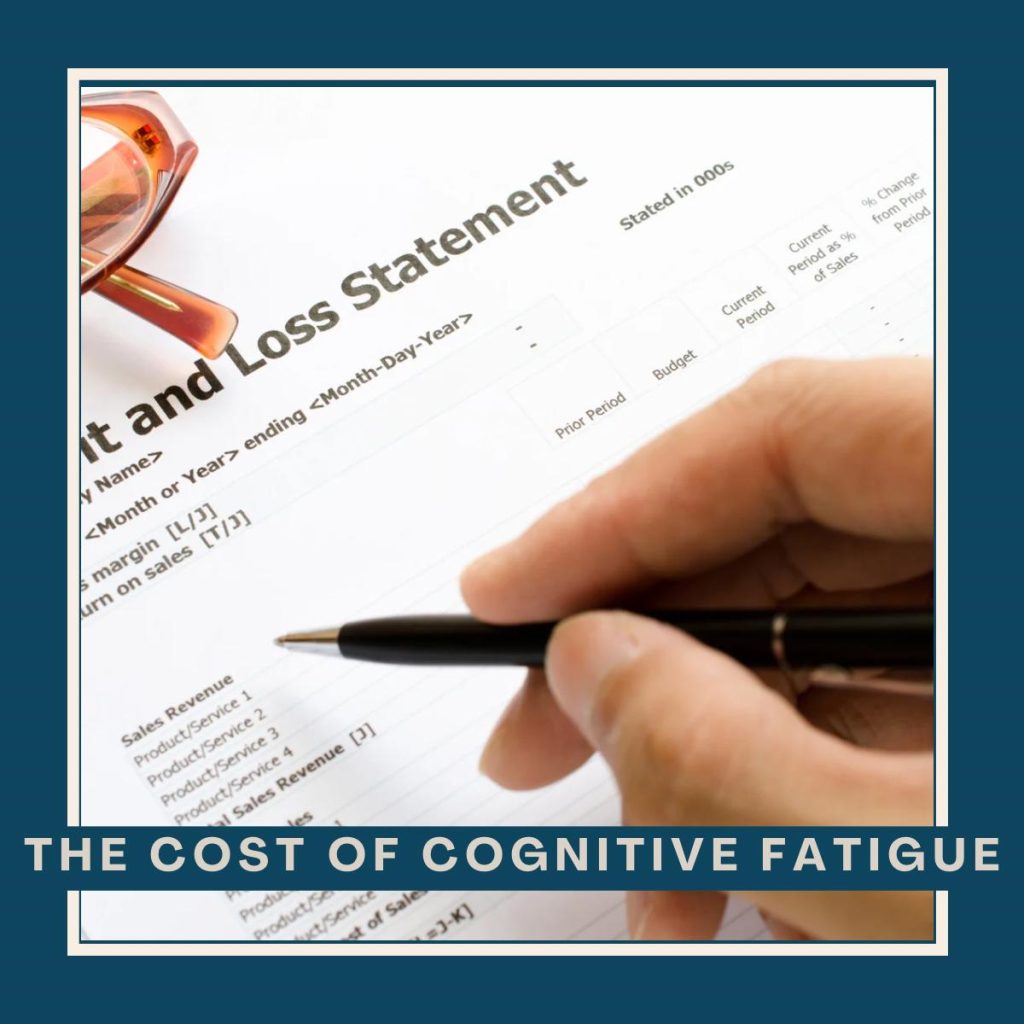“Your mind is your greatest asset in law. When it becomes overloaded, performance declines long before you notice the signs.”
In the legal world, most performance losses do not start with obvious mistakes or missed deadlines. They begin quietly, in the form of mental overload. Files are still moving, court appearances are still made, and billable hours are still logged, but focus is dulled, decisions are slower, and small errors begin to creep in.
This phenomenon is called cognitive fatigue. It is not a matter of working hard; it is the progressive erosion of mental capacity caused by sustained cognitive load. In high-pressure legal practice, where attention must remain precise, the cost is substantial.
What Is Cognitive Overload?
Cognitive overload occurs when the brain is required to process more information, stimuli, or decisions than it can manage effectively in a given period. The prefrontal cortex, which governs executive functions such as reasoning, decision-making, and complex problem-solving, becomes overwhelmed.
Research shows that when cognitive load exceeds capacity, the brain shifts into a “reactive” mode, prioritising immediate responses over deeper analytical thinking (Sweller, 2011). This is particularly dangerous in legal practice, where complex reasoning is essential and snap decisions can carry significant consequences.
The Neuroscience Behind It
The Prefrontal Cortex Bottleneck
The prefrontal cortex can only hold and manipulate a limited amount of information at any given time. Miller’s classic research suggested this “working memory” capacity is about seven items, plus or minus two (Miller, 1956). Modern neuroscience suggests the limit is even smaller when information is complex or high stakes.
Decision Fatigue and Performance Decline
Repeated decision-making depletes cognitive resources. A well-known study of Israeli parole judges found they were significantly more likely to grant parole early in the day or after breaks, with decisions declining in quality and leniency as mental fatigue set in Decision Fatigue in Judges (PNAS, 2011).
For lawyers, this means that the order in which tasks and cases are addressed can influence outcomes in ways that are invisible yet profound.
The Cost of Multitasking
Contrary to widespread belief, multitasking does not increase productivity. Neuroscience research from Stanford University shows that frequent multitaskers have reduced ability to filter irrelevant information and struggle to switch between tasks efficiently Media Multitasking and Cognitive Control (PNAS, 2009).
In a legal setting, this translates to slower drafting, more rework, and increased risk of oversight.
Why Law Firms Should Pay Attention
Cognitive fatigue has measurable business consequences. It erodes billable hours not through absenteeism, but through “presenteeism”; being physically at work but operating at reduced capacity.
Our internal modelling at the Professional Mind Resilience Institute shows that even a modest 5% drop in focus across a 20-lawyer team can cost a firm the equivalent of losing a full-time senior associate for a year.
The losses appear in three key areas:
- Rework on files due to overlooked details
- Missed opportunities for proactive client strategy or cross-selling
- Silent turnover risk as high performers quietly disengage
The Human Cost for Lawyers
Beyond profit, the personal toll is significant. Chronic cognitive overload contributes to:
- Increased stress hormone production, particularly cortisol, which impacts both mood and immune function
- Sleep disruption, which further impairs decision-making and memory consolidation
- Emotional dysregulation, making client interactions more challenging and draining
This is why cognitive fatigue often precedes burnout. By the time a lawyer is considering leaving the profession or taking extended leave, the damage has already been accumulating for months, if not years.
Breaking the Overload Cycle
Neuroscience-backed strategies can prevent and reverse cognitive fatigue. The most effective for legal teams are:
- Structured Focus Cycles – Working in deliberate, uninterrupted intervals with planned mental recovery breaks improves sustained attention.
- Cognitive Load Mapping – Identifying high-load periods and aligning the most demanding legal work with peak mental energy.
- Decision Architecture – Reducing low-value decisions and creating automated processes for routine tasks to preserve cognitive capacity for complex matters.
- Mental Recovery Protocols – Short, targeted interventions such as the “physiological sigh” can reset the nervous system in minutes, restoring clarity mid-day.
Why It Requires a Firm-Wide Approach
Individual strategies are powerful, but cognitive fatigue is not only an individual problem. In law firms, the structure of work, expectations of responsiveness, and cultural norms around breaks and boundaries all influence mental load.
If the system is designed to keep every lawyer in constant high-stimulus mode, no amount of individual resilience will fully counteract the drain.
This is why at PMRI we collaborate with firms not only to train lawyers in mental performance techniques, but also to audit and adjust workflow patterns to reduce systemic overload.
The Competitive Advantage
Firms that protect cognitive capacity do not just avoid loss; they gain a measurable edge. Their lawyers:
- Produce higher-quality work in less time
- Maintain better client relationships through consistent communication and empathy
- Innovate more readily because they have mental space for strategic thinking
In a profession where the margin between success and error can be razor-thin, cognitive performance is not optional. It is the foundation of sustained excellence.
If your firm has never measured the impact of cognitive fatigue, you are likely underestimating both the risk and the opportunity.
Book a 30-minute conversation to explore how we can help your lawyers protect and strengthen their mental performance.
Book your session here.


